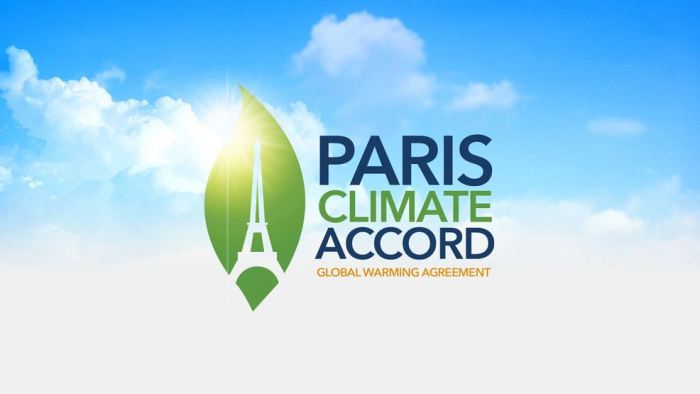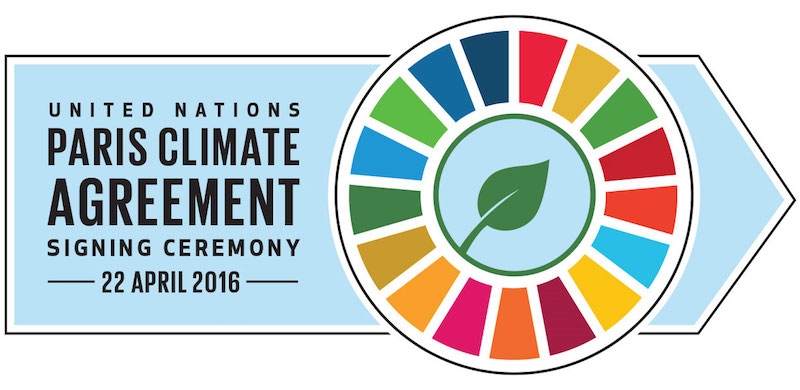The Paris Accord, a landmark international agreement on climate change, has sparked heated debate. Its proponents tout its potential benefits, while critics raise concerns. Let’s delve into the Paris Accord pros and cons to understand its implications for our planet and society.
The Accord aims to limit global temperature rise, mitigate climate change impacts, and foster sustainable development. However, its implementation comes with potential economic, environmental, political, technological, and social challenges.
Economic Impact

The Paris Accord has significant economic implications, both positive and negative. On the one hand, it is expected to create new jobs and stimulate innovation in clean energy sectors. On the other hand, it may also lead to job losses in traditional energy industries and increased energy prices for consumers.
Job Creation and Innovation
- The transition to a low-carbon economy is expected to create millions of new jobs in sectors such as renewable energy, energy efficiency, and electric vehicles.
- These jobs will require new skills and training, but they also offer the potential for higher wages and better working conditions.
- Additionally, the Paris Accord is expected to stimulate innovation in clean energy technologies, leading to new products and services that can create even more jobs.
Job Losses and Increased Energy Prices
- The transition to a low-carbon economy may also lead to job losses in traditional energy industries, such as coal mining and oil production.
- These job losses are likely to be concentrated in regions that are heavily dependent on fossil fuels.
- Additionally, the Paris Accord may lead to increased energy prices for consumers, as businesses pass on the cost of compliance with the agreement.
The overall economic impact of the Paris Accord is difficult to predict. However, it is clear that there will be both positive and negative effects. Governments and businesses will need to carefully consider these impacts when developing and implementing policies to comply with the agreement.
Environmental Impact

The scientific consensus on climate change indicates that human activities, particularly the burning of fossil fuels, have significantly contributed to the rise in global temperatures and the subsequent changes in the Earth’s climate system. These changes have led to increased extreme weather events, such as heat waves, droughts, floods, and wildfires, as well as rising sea levels and ocean acidification.The
The Paris Accord, an international agreement on climate change, has its share of advantages and disadvantages. Its supporters emphasize the need to address environmental concerns, while detractors raise questions about its economic implications. To explore your understanding of French culture, take the how french are you quiz . Returning to the Paris Accord, it remains a topic of ongoing debate, with both sides presenting valid arguments.
Paris Accord aims to mitigate climate change by setting targets for reducing greenhouse gas emissions. By reducing greenhouse gas emissions, the Accord can help stabilize global temperatures and minimize the potential impacts of climate change on the environment.
Potential Benefits of the Paris Accord on the Environment
The Paris Accord has the potential to bring about several environmental benefits, including:
Reduced greenhouse gas emissions
The Accord sets targets for reducing greenhouse gas emissions, which can help stabilize global temperatures and minimize the potential impacts of climate change.
Reduced air pollution
Reducing greenhouse gas emissions can also lead to reduced air pollution, which can improve public health and reduce the number of premature deaths.
Increased renewable energy production
The Accord encourages the transition to renewable energy sources, such as solar and wind power, which can help reduce greenhouse gas emissions and create jobs.
Protected ecosystems
The Accord aims to protect ecosystems and biodiversity by reducing the impacts of climate change, such as rising sea levels and ocean acidification.
Political Impact: Paris Accord Pros And Cons

The Paris Accord has significant political implications, presenting both challenges and opportunities for global climate action.
One challenge is the need for sustained political commitment from all participating countries. The Accord requires long-term efforts to reduce emissions and adapt to climate change, which may face political resistance or shifts in government priorities over time.
International Cooperation
The Paris Accord has the potential to foster international cooperation on climate change. By setting a common goal and providing a framework for action, the Accord can encourage countries to work together and share resources and expertise. This collaboration can help overcome the challenges of climate change, which transcend national borders and require global solutions.
Technological Impact

The Paris Accord has the potential to drive innovation and technological advancements in clean energy and energy efficiency. The agreement sets ambitious goals for reducing greenhouse gas emissions, which will require countries to develop and deploy new technologies. This could lead to significant investment in renewable energy sources, such as solar and wind power, as well as carbon capture and storage technologies.
Investment in Renewable Energy, Paris accord pros and cons
The Paris Accord is likely to encourage investment in renewable energy sources. As countries move to reduce their emissions, they will need to find new ways to generate electricity. Renewable energy sources are becoming increasingly cost-effective, and the Paris Accord could help to accelerate their adoption.
Carbon Capture and Storage
Carbon capture and storage (CCS) is a technology that can remove carbon dioxide from the atmosphere. CCS is still in its early stages of development, but it has the potential to make a significant contribution to reducing greenhouse gas emissions.
The Paris Accord could help to encourage investment in CCS research and development.
Social Impact

The Paris Accord holds potential social benefits and challenges.
Positive Impacts
Improved Public Health
Climate change mitigation measures, such as reducing air pollution and promoting renewable energy, can enhance air quality and reduce respiratory illnesses.
Reduced Climate-Related Disasters
Climate adaptation efforts, like strengthening infrastructure and improving early warning systems, can minimize the impacts of extreme weather events, protecting lives and livelihoods.
Negative Impacts
Impact on Vulnerable Populations
Climate change disproportionately affects marginalized communities, who may lack resources to adapt. The transition to a low-carbon economy could also lead to job losses in certain sectors.
Lifestyle Changes
Implementing the Accord may require lifestyle changes, such as reducing energy consumption or adopting more sustainable practices. These changes could be challenging for some individuals.
FAQ
What are the potential economic benefits of the Paris Accord?
The Accord could create jobs in clean energy, innovation, and energy efficiency.
What are the potential economic costs of the Paris Accord?
Job losses in certain industries and increased energy prices are possible.
How does the Paris Accord address climate change?
It sets targets for reducing greenhouse gas emissions and promotes investment in renewable energy.
